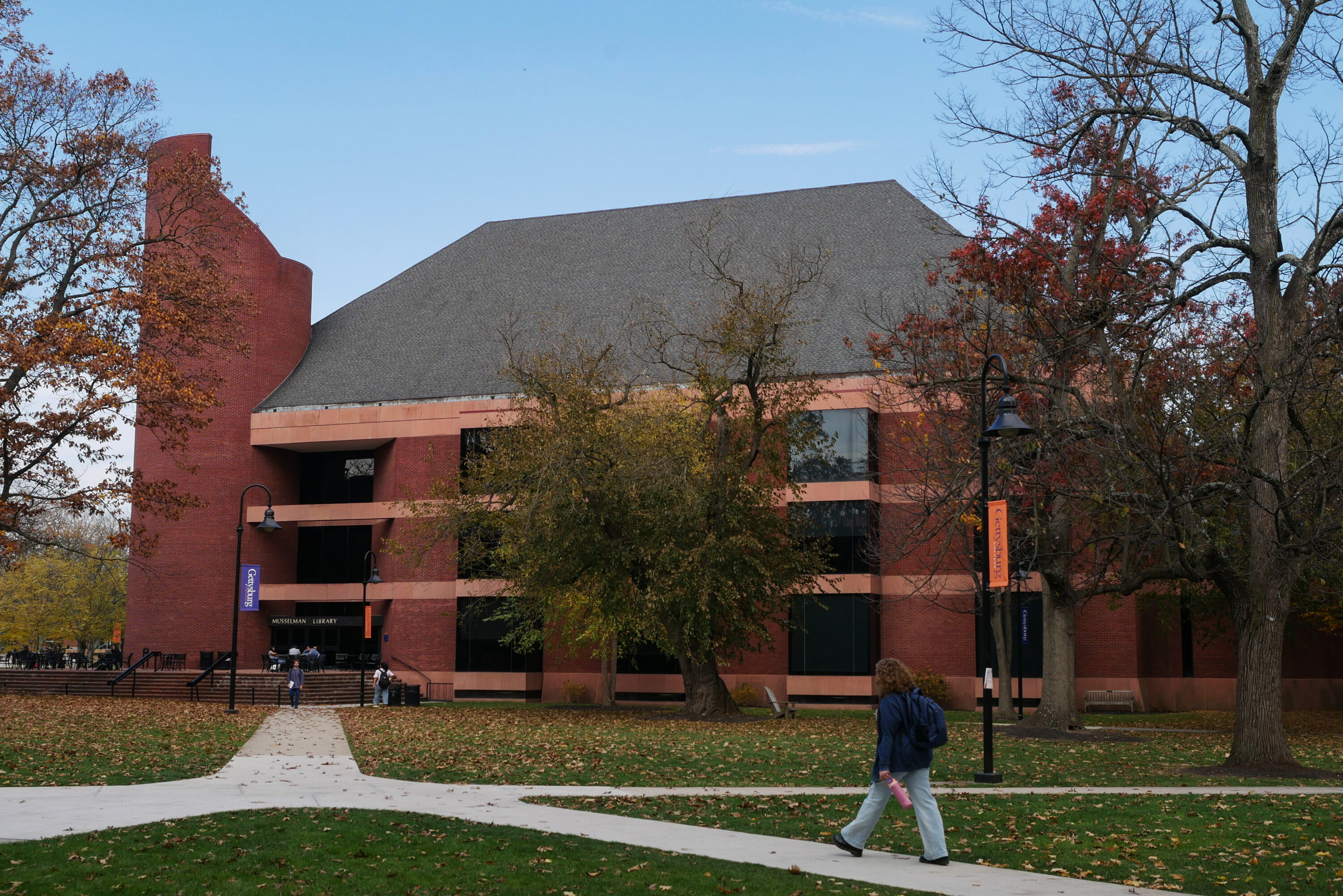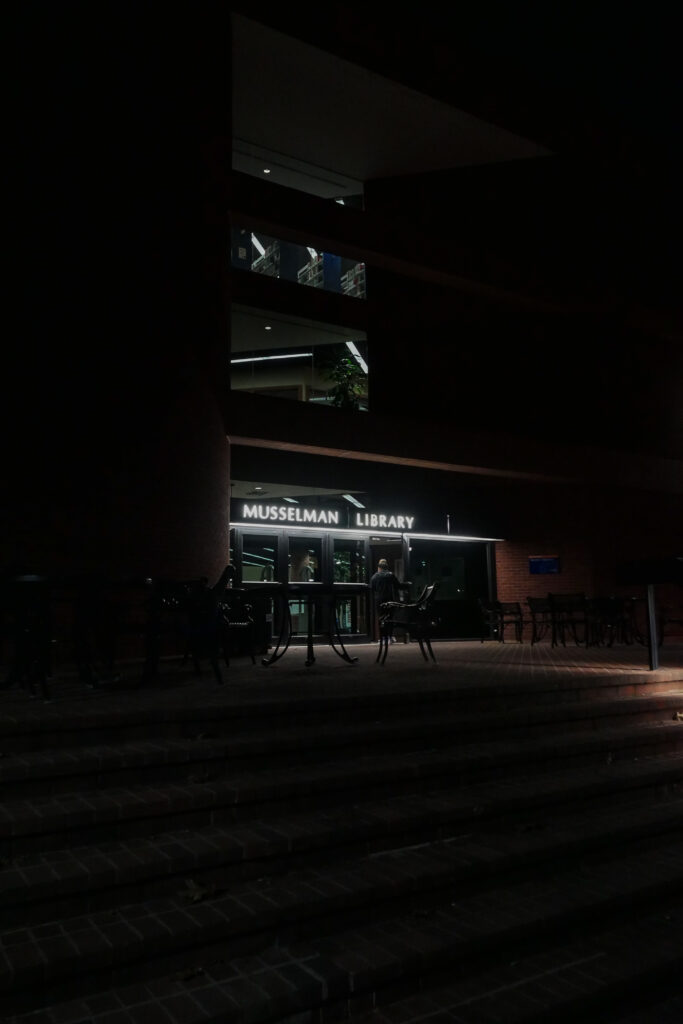By Ella Prieto, Managing and News Editor
Last semester, Director of Scholarly Communications Janelle Wertzberger and Scholarly Communications Librarian Mary Elmquist shared the results from the Gettysburg College Student Textbook and Course Materials Survey conducted in the fall of 2022. The research was titled “Spend, Stress, and Struggle: Gettysburg College Student Textbook and Course Materials Survey 2022.”
Their research provided valuable input about the current climate of textbook affordability on campus. For example, the average cost spent on course materials was $248.10, while the average cost of what students felt was reasonable was $61.81. Furthermore, many students reported that they struggled academically because of the costs, with some even stating that they changed their majors because of the costs associated with required courses.
Looking at this data and other research, staff from Musselman Library came together over the summer to help increase textbook affordability throughout the College. Part of this plan has been to rename the “Course Reserves” collection in the library to “Course Materials.” Through this program, students can check out selected books needed for their classes for two-hour periods.
Director of User Services Kerri Odess-Harnish commented on the decision to change the name.
“When we started to have these conversations about making changes to our policies, one of the things we asked students who happened to be here over the summer was if we were to expand this service [Course Reserves] what would you call it?” explained Odess-Harnish. “Course Materials seemed to be the one that filtered to the top.”
Another alteration to this service was the purchasing of textbooks. Wertzberger explained what “textbook” encompasses in academic libraries.
“What we mean by textbooks is what we in the library call capital T textbooks. So that big, chunky one book for your whole class kind of textbook, not like in your history class when you’re reading six different academic monographs. That’s not a capital T textbook,” she said.
Musselman Library had a policy to never buy those textbooks for multiple reasons, including that publishers release newer editions quickly and that they are very expensive. Furthermore, academic libraries lead with the mindset that the library supports research, but students buy the core learning materials for their classes.
This mindset, however, has changed as the movement for textbook affordability has gained traction in the academic world.
The other change to the Course Materials collection is that students, in addition to faculty, can now request books to be added. Faculty can also loan their own personal copies to be utilized as well. This has led to the collection adding roughly 100 titles.
There has been an uptick in students and faculty using the Course Materials Collection. Course Materials Coordinator Lisa McNamee reported that the number of courses employing the collection has jumped from 59 to 126 within one year. Additionally, the circulation for all hard copy items in the collection for the entirety of last year was 921. By November of this academic year, the circulation number was already 914. McNamee even stated that she is already working on obtaining six more titles to add to the collection for the spring semester.
“We’re growing, we know it just from looking at the shelves,” said McNamee. “The shelves are packed.”
The other aspect of textbook affordability that the library is working towards is Open Educational Resources (OER), also referred to as open textbooks.
“In Janelle’s ideal world, students don’t have to pay for textbooks and faculty can have the exact custom textbook that supports the way they teach their class with their content and their learning objectives,” said Wertzberger. “And open textbooks, which are free from copyright restrictions, let faculty revise them, edit them, remix them, retain them, redistribute them. All the things you can’t do with commercial textbooks.”
Multiple professors have already begun teaching their classes using OERs, including Assistant Professors of Management Dr. Alice Brawley Newlin and Dr. Marta Maras. Maras described their process and reasoning for why they created an OER together.
“Professor Brawley Newlin and I adopted and made significant edits to an existing open textbook for our course Statistical Methods that yearly enrolls around 120 students. We wanted to have a zero-cost textbook in our major’s gateway class so that our students would have free and consistent access to all course materials from the first day of class,” she explained.
Maras described the effect this has had on their students and classes.
“This created a more inclusive learning environment and lessened at least part of the financial burden our students are facing in higher education today. Providing fair access and equity in opportunities is key to student success, especially in disciplines, such as business studies, that have historically not been easily accessible to students of all backgrounds. We tried to remove at least one obstacle that might be standing in the way of students’ enrollment and success in our classes,” Maras said.
The two professors are currently working on their third edition of this OER and have been able to include student contributions in the new editions.
Public Policy Department Chair Dr. Anne Douds shared that her department has been working to eliminate costs for their students as well.
“Students increasingly face budget stressors, and the cost of course materials contributes to the uncertainty and anxiety surrounding budgeting for their education. In order to alleviate some of that stress, the Public Policy Department is moving all of its courses to be cost-free – meaning that students do not have to buy any books or supplies to fully participate in class,” Douds said.
Douds expressed that this can be a difficult transition, yet the department is focused on its goal.
“It can be particularly difficult to move introductory courses to cost-free status because of traditional reliance on well-written and well-established textbooks. Nevertheless, we are taking short and long-term measures to make sure that all of our courses will be 100% cost-free by next academic year.”
This work has included uploading individual chapters to Moodle and purchasing extra copies of required materials to place in the Course Materials Collection. Douds expressed the department’s concern over students’ different learning styles and shared that they will have a variety of formats of the required texts that students can choose from to accommodate this.
The department also plans to write an Introduction to Public Policy textbook that will be completely open-access. Multiple professors, from Gettysburg College and elsewhere, will collaborate to write chapters they are experts on. Like Martas and Brawley Newlin, they too are working to include student writings.
Professors of Public Policy Dr. Christopher Rick and Dave Powell are actively working on this goal with Douds, and Rick recently received a grant from the Johnson Center for Creative Teaching and Learning (JCCTL) to help with the creation of the OER Public Policy textbook.
Working actively together, faculty, staff and students have made significant changes to textbook affordability at Gettysburg College.
“My hope is that we’ll get closer to a world where publishers don’t exploit academic authors and students for profit and, more importantly, where more of the costs of higher education are shared throughout society and not foisted exclusively on the students who decide to improve their lives, and the lives of others, by becoming educated,” said Powell. “We can work toward that!”
This article originally appeared on pages 18 to 19 of the December 2023 edition of The Gettysburgian’s magazine.



December 17, 2023
Commendable goals. Do hope quality and choice don’t suffer.
On other side of costs, why not look at reduction of college variable costs, to hold down tuition and miscellaneous fees. There is too much overhead not germane to heart and soul of college, faculty and students. Don’t throw rocks at publishers from glass house?